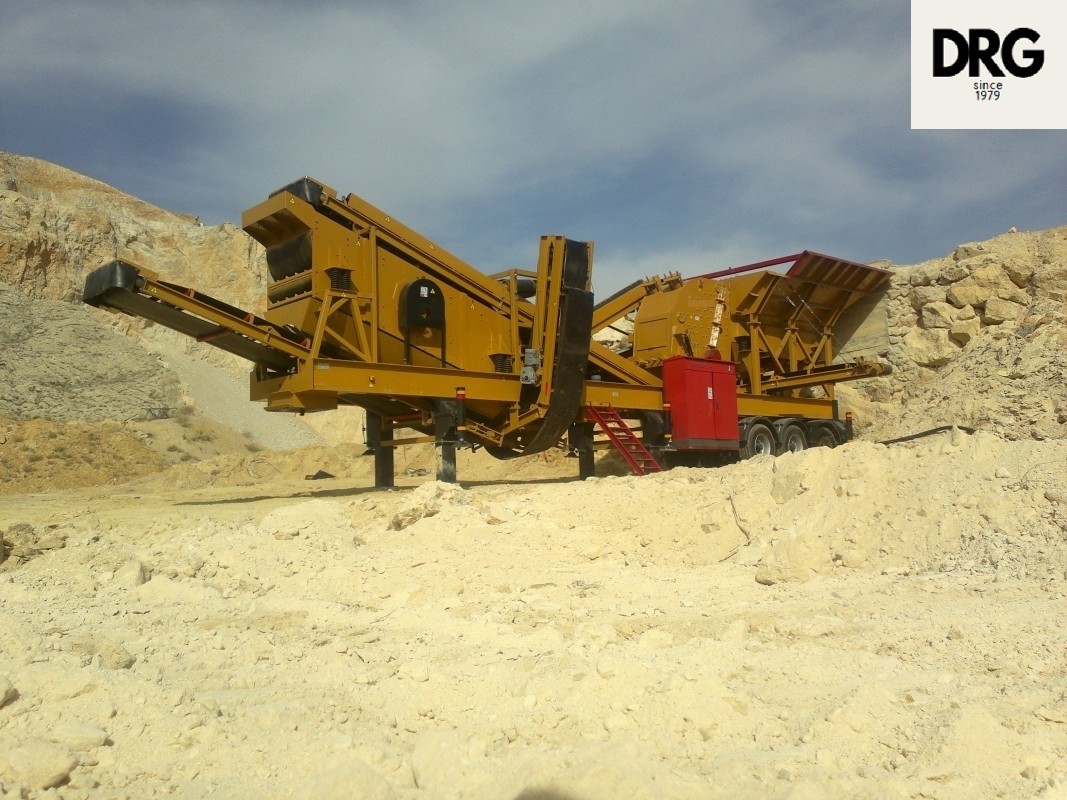The portable basalt crushing and screening plant is an important tool in the construction and mining industries due to its mobility and on-site operational capabilities. Basalt is one of the most commonly found volcanic rocks, known for its durability and hardness. These plants are used in the process of crushing basalt into various sizes and screening it through sieves. Portable basalt crushing and screening plants provide significant convenience, especially in construction sites, where on-site operations are required.
1. What is a Portable Basalt Crushing-Screening Plant?
A portable basalt crushing and screening plant is a set of machinery used for crushing basalt rocks, sorting them, and separating them into desired sizes. Due to their portability, these plants can be used in various construction sites and mining quarries. Typically, they consist of several key components: crushers, screens, conveyors, motors, and other auxiliary systems.
Main Equipment:
-
Crushers: These break basalt rocks into smaller pieces, sized according to project requirements.
-
Screens: These separate the crushed basalt into various sizes to meet specific standards.
-
Conveyors: These move the crushed material to other parts of the plant.
-
Motors and Control Systems: These manage the plant's operation and optimize energy efficiency.
2. Applications of Portable Basalt Crushing-Screening Plants
These plants are especially valuable in the construction sector. Due to the high durability of basalt, it is widely used in road construction, infrastructure projects, and concrete production. Their portability allows for quick setup and operation at various locations, making them ideal for construction projects in remote areas. They are also used in mining quarries for basalt extraction and processing.
3. Advantages of Portable Basalt Crushing-Screening Plants
-
Portability: Their mobility allows for use at various locations, making them highly practical for large construction projects and remote mining areas.
-
Time Savings: The ability to set up the plant on-site reduces transportation and logistical delays.
-
Cost Efficiency: On-site operations minimize transportation costs, reducing overall expenses.
-
Flexibility: These plants can process different types of basalt, increasing their utility.
4. Working Principle of the Portable Basalt Crushing-Screening Plant
The working principle involves first crushing the basalt rocks into the desired sizes using crushers, then screening the material through sieves. The crushers break the basalt into various sized particles, and the screens separate them to achieve the required specifications. Crushed basalt is then transported via conveyors to storage or further processing points.
5. Environmental Impact and Sustainability
The environmental impact of portable basalt crushing-screening plants can be minimized with proper management. Dust, noise, and vibration can be controlled using modern technologies and filtration systems. Additionally, energy efficiency can be increased by using environmentally-friendly motors and recyclable materials.
 English
English
 Le français
Le français
 Türkçe
Türkçe

